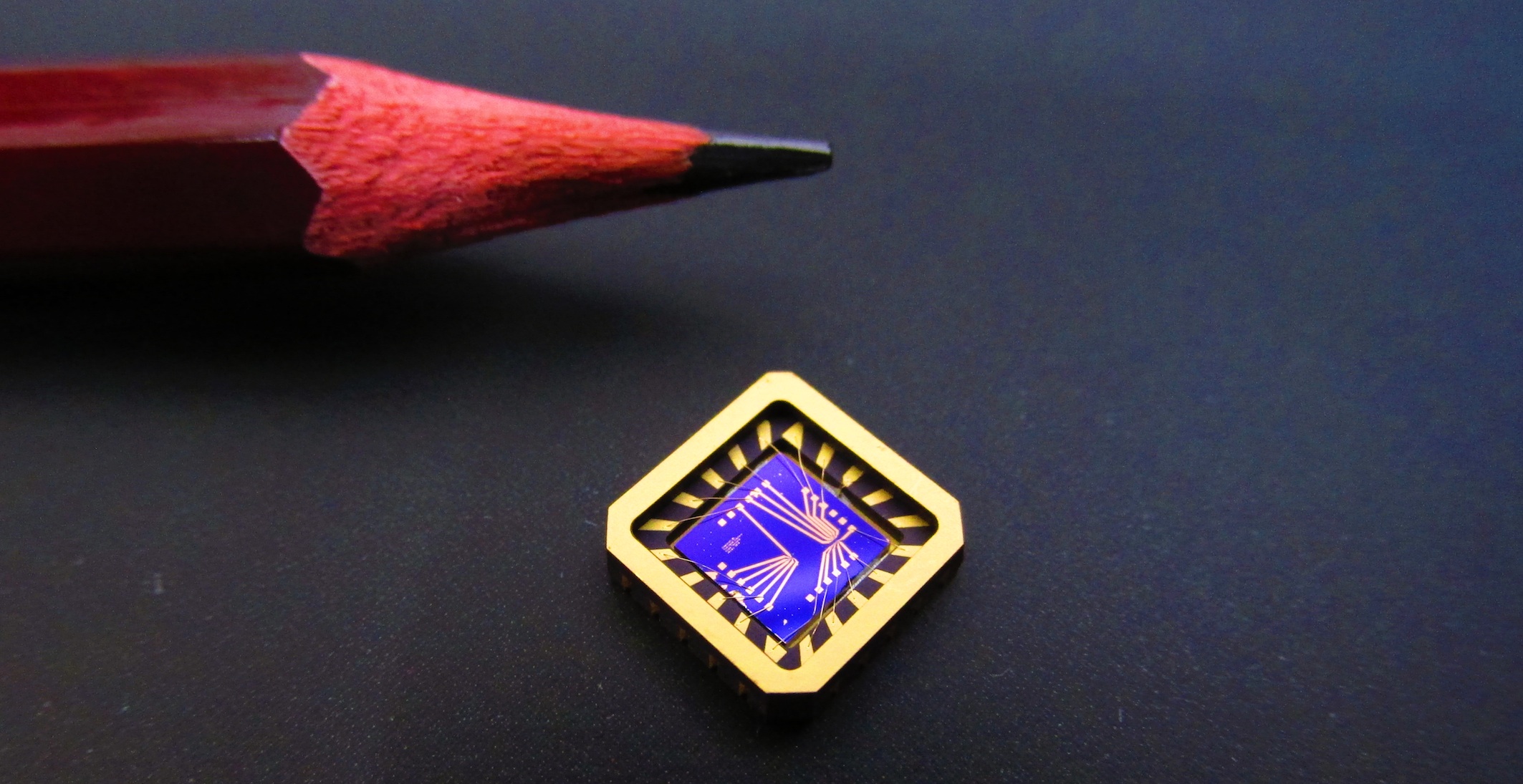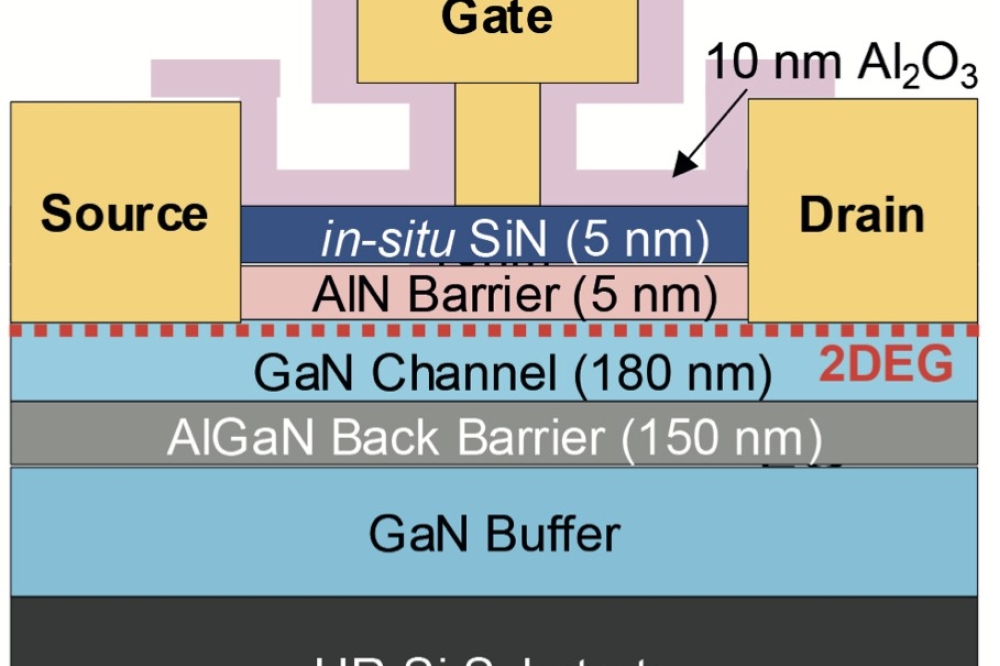DSTL funding research into 2D semiconductors

The UK's Defence Science and Technology Laboratory (Dstl) is funding a PhD project at the University of Exeter to research the properties of 2D semiconductors based on MoTe2.
PhD student Nicola Townsend (who is working with Saverio Russo and Monica Craciun, with additional work by Iddo Amit, a Research Fellow funded through the European Commission Marie Curie Actions) started out looking at magnetic field sensors, but the project was modified to research into the problems with implementing MoTe2 into everyday devices.
Townsend discovered that some of the problems could offer new solutions. Minute imperfections hinder the motion of charges in the material, requiring higher energy to operate them. Surprisingly, the same imperfections can also be utilised for advanced applications, like infrared photo-detectors or memory devices.
The material is transparent and flexible, making it ideal for wearable tech use. Real-world applications include flexible solar panels - on backpacks or integrated into clothes, which wouldn't add any weight. There is also potential for infrared sensing as part of cameras which can allow their use in smoke or harsh weather conditions, or to sense organic chemical signatures in real time on packaging. There are also potential uses in communications, or for having data storage in your shirt.
Townsend said: "Graphene was only successfully isolated and measured 14 years ago, and by this sparked global interest in 2D materials. We're only now starting to scratch the surface by looking into finding and exploiting these new materials. We're working our way to mass production, but we can already see that this area has a huge potential."


































